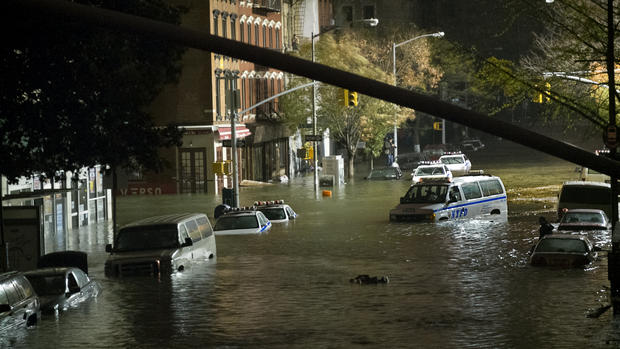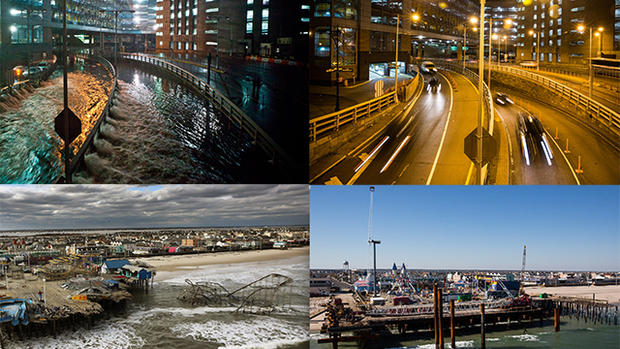NOAA hurricane forecast: What does 2014 hurricane season have in store?
Forecasters are predicting a slower than usual hurricane season this year because of an expected El Niño system.
The National Oceanic and Atmospheric Administration announced its annual hurricane forecast in in New York City on Thursday. Officials said that the periodic Pacific warming characteristic of El Niño will likely reduce the number and intensity of tropical storms and hurricanes.
But that doesn't mean that coastal communities should let down their guard. "Even though we expect El Niño to suppress the number of storms this season, it's important to remember it takes only one land falling storm to cause a disaster," NOAA administrator Kathryn Sullivan said in a news release.
The six-month storm season begins June 1.
This year, NOAA officials expect about eight to 13 named tropical storms and three to six hurricanes. Just one or two major hurricanes with winds over 110 miles per hour are forecast, at a 70 percent likelihood rate.
Cooler temperatures on the surface of the Atlantic Ocean compared with recent years are also expected to lower the probability of hurricane formation.
But forecasters got it wrong last year when they predicted an unusually busy hurricane season. There turned out to be just 13 named storms and two Category One hurricanes, Umberto and Ingrid. There were no major hurricanes.
When it comes to hurricane predictions, "a perfect forecast is not guaranteed," said Colorado State University research scientist Philip Klotzbach in an interview with CBSNews.com. Klotzbach said it only takes one storm to ruin a season's forecast.
Besides NOAA, CSU researchers also issue their own hurricane season predictions. Researchers at CSU researchers have forecast nine named storms in 2014, with just three expected to become hurricanes and one major storm with winds over 110 mph.
The Atlantic hurricane season goes through cycles of high and low activity about every 25 to 40 years based on large scale climatic patterns in the atmosphere.
Since 1995, an average season has 15 named tropical storms, eight hurricanes and about four major storms. The last time a major hurricane made landfall in the U.S. was when Wilma came ashore in 2005, an eight-year stretch that is the longest on record.
During the six-month season, forecasters name tropical storms when top winds reach 39 mph; hurricanes have maximum winds of at least 74 mph.
Klotzbach said scientists try to make the best predictions based on available variables and data sets and for the public, the forecasts are a matter of safety.
"There's inherent curiosity about how active the season would be," said Klotzbach.
Officials urged Americans to be prepared, and they unveiled a new mapping tool unveiled to help keep coastal residents updated on the storm surge threat in their communities. "Thanks to the environmental intelligence from NOAA's network of earth observations, our scientists and meteorologists can provide life-saving products like our new storm surge threat map and our hurricane forecasts," Sullivan said.
The maps were promised last year and are being implemented for the 2014 season.
Storm surge was devastating to the New York area when Superstorm Sandy slammed the East coast in 2012, killing 147 people and causing $50 billion in damage. Sandy lost hurricane status when it made landfall in New Jersey.
"It only takes one hurricane or tropical storm making landfall to have disastrous impacts on our communities," said Joe Nimmich, FEMA associate administrator for Response and Recovery in a news release. "Just last month, Pensacola, Florida saw five inches of rain in 45 minutes - without a tropical storm or hurricane. We need you to be ready. Know your risk for hurricanes and severe weather, take action now to be prepared and be an example for others in your office, school or community..."

